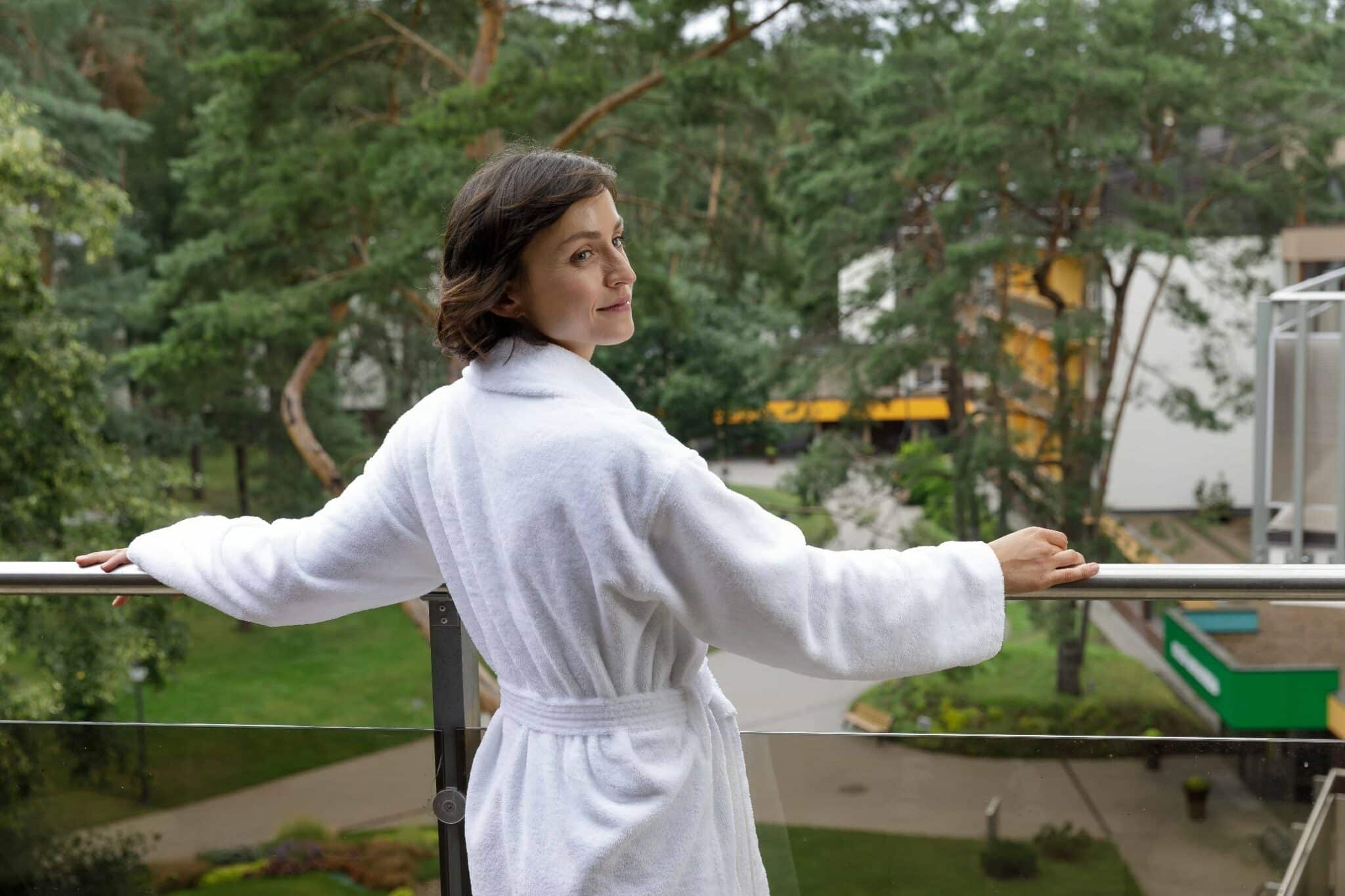
Neuroscientist Dr. Kęstutis Skauminas: ‘We must slow down’
An increasing number of people who lead active lifestyles are suffering from nervous system overloads, which lead to chronic fatigue stemming from the demands of the modern social environment. Job burnout has become a serious issue. How can we put a stop to it?
Consequences of leading a hectic lifestyle
Dr. Kęstutis Skauminas, a neuroscientist and Medical Director at Medical SPA Eglės sanatorija, claims that the contemporary social lifestyle might not always be favourable to our health. ‘We are all becoming engaged in a progressively faster pace of life, remote work and its peculiarities, an imbalance between work and personal life, and ever-growing expectations from our employers. But not everyone pauses to reflect on the outcomes of such a lifestyle,’ says Dr. Kęstutis Skauminas. ‘The modern environment has already influenced us in a certain way. Now we have become aware of the primary factors that contribute to a multitude of non-infectious chronic illnesses: these include chronic fatigue and a sedentary lifestyle. Many people today are overweight, suffer from spinal and cardiovascular diseases, sleep and mood disorders. All of these factories continue to change people’s needs. It is now important to reduce stress, slow down, get sufficient rest, take care of sleep hygiene and engage in physical activity,’ says the neuroscientist. According to him, these emerging necessities are met by Medical SPA treatment, which is grounded in scientific evidence and well-developed in Lithuania.
When does the tension arise?
More and more fast-paced and active people succumb to tension. Dr. Kęstutis Skauminas states that burnout is a nervous system’s response to work. ‘Tension arises when the needs of a person or their view towards the occupation conflict with the standards or requirements imposed within the workplace. It is akin to a toxic clash between an employee’s heightened ambitions and the corporate need to extract the highest profit from the employee’s talents. This response is not an isolated incident but rather persists over time, eventually evolving into chronic stress. Of course, the stress may have other origins. Chronic stress can affect professionals in various fields and, for example, individuals caring for their family members who are dealing with chronic illness. Yet, as the neuroscientist highlights, the term ‘burnout’ is exclusively used to discuss burnout at work.
Global tendencies
According to Dr. Skauminas, the goal of active people is no longer to simply live longer – now it is about healthy ageing. ‘The United States of America was among the first countries to set clear objectives in the area of its public health, which are as follows: ‘To attain high-quality, longer lives free of preventable disease, disability, injury, and premature death’. The progress toward achieving these objectives is measured by data on how many of its citizens are living without activity limitation, and what percentage of the population is in good or better health and suffers from specific chronic illnesses. Japan and European Union have also set their public health objectives. In Europe, the Healthy Life Years (HLY) indicator is measured by using the Minimum European Health Module (MEHM), composed of 3 general questions on disability, chronic morbidity, and perceived health’
The neuroscientist is certain that the Medical SPA treatment must have its place in state policy and become more available to the population, while wellness and rehabilitation services should become an essential part of personal healthcare.
It is not only about the physical body.
‘During Medical SPA treatment, giving the undivided attention to a burned-out and chronically stressed person becomes of utmost importance. It is necessary to attend to their mental and spiritual health as well,’ asserts the Medical Director of Medical SPA Eglės sanatorija.
Medical SPA treatment and medical rehabilitation continue to uphold their time-honoured treatment traditions, which are steadily gaining popularity. In 2022, every tenth Lithuanian visited the Medical SPA or a wellness centre. People are looking for a single destination to access help, expert guidance, and services. People more often opt for natural treatments rather than medicine or surgeries.
Quality rest at least for a weekend
As Dr. Kęstutis Skauminas says, the active individual of today’s world is required to restore their energy in a short time, so even a good weekend’s rest proves very beneficial. ‘The effect of a Medical SPA treatment over a weekend depends on the treatments selected and their number. However, for individuals experiencing prolonged stress, a Medical SPA treatment spanning 2 to 3 weeks would achieve the best results,’ says the neuroscientist.
According to Dr. Skauminas, To aid individuals experiencing chronic stress, a variety of treatments aimed at reducing stress, enhancing mood, inducing relaxation, and promoting physical activity are favoured. These range from diverse inhalation therapies and deep breathing exercises to muscle relaxation treatments. During these treatments, mental well-being improves as well. It may be improved by creating a peaceful environment with the use of sounds, visuals, and scents. The desired effect is further strengthened by the weather in the resort, mineral water, and healing mud. At the heart of the workings of chronic stress lies the complex response of a nervous system, so the treatment applied should be complex as well.